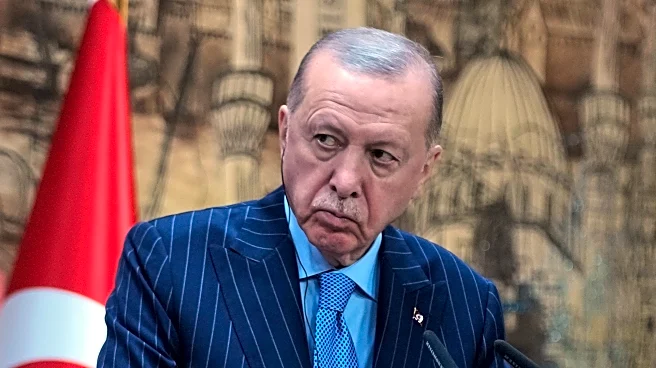What is the story about?
What's Happening?
China has implemented new restrictions on the export of rare-earth minerals and related technologies, citing national security concerns. The Chinese commerce ministry announced that government permission is now required for exporting technology used in mining, processing, or recycling rare-earth minerals, as well as for making magnets from these materials. The restrictions are part of a broader strategy to control products critical for use in smartphones and fighter jets. These measures coincide with ongoing US-China trade talks and precede a planned meeting between Xi Jinping and President Trump at the Apec summit in South Korea. China, which controls approximately 70% of the world's rare-earth mining and nearly all of its processing and magnet manufacturing, has also banned Chinese nationals and companies from assisting in these processes overseas. The new rules, effective immediately, expand on previous restrictions announced in April.
Why It's Important?
The tightened control over rare-earth exports by China has significant implications for global industries reliant on these materials, including consumer electronics, automotive, and defense sectors. The restrictions could exacerbate supply chain challenges, particularly for countries like the U.S. that depend on Chinese rare-earth elements for manufacturing advanced technologies. This move is seen as a strategic leverage point for Beijing in its trade negotiations with Washington, potentially influencing the dynamics of international trade and geopolitical relations. The restrictions also highlight China's intent to safeguard its technological advancements and national security interests, which could lead to increased tensions in global trade discussions.
What's Next?
The immediate effect of these restrictions is likely to be felt in industries that rely heavily on rare-earth elements, prompting companies to seek alternative sources or technologies. The upcoming meeting between Xi Jinping and President Trump at the Apec summit may address these trade tensions, with potential discussions on easing restrictions or finding mutual agreements. Stakeholders in the U.S. and other affected countries may push for diplomatic solutions to mitigate the impact on their industries. Additionally, companies with existing export licenses for dual-use items are encouraged to present them for inspection, indicating a possible review and adjustment of current agreements.
Beyond the Headlines
The restrictions on rare-earth exports could lead to long-term shifts in global supply chains, encouraging countries to invest in domestic rare-earth mining and processing capabilities. This development may also spur innovation in alternative materials and technologies to reduce dependency on Chinese rare-earth elements. Ethically, the move raises questions about the balance between national security and global trade cooperation, potentially influencing international policies on resource management and technological development.


















